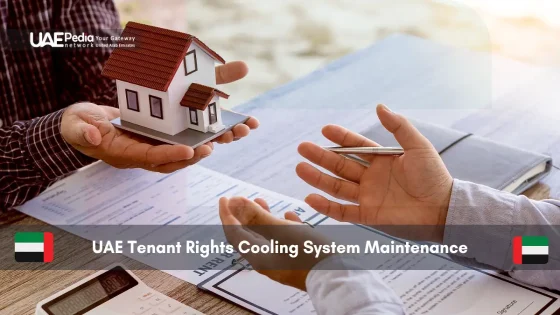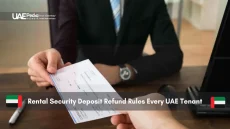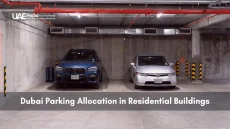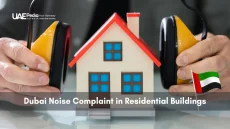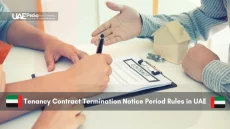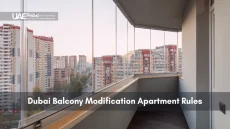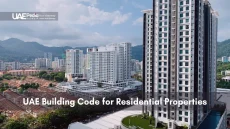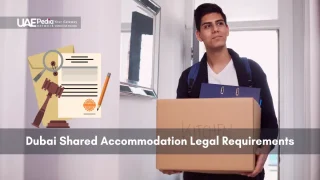When a Dubai International Financial Centre building recently shifted aircon fees to residents, over 60% of tenants reported billing disputes within three months. This quiet clash highlights a growing question: what exactly falls under your responsibility versus your landlord’s when summer temperatures soar?
Understanding maintenance duties for cooling systems isn’t just about comfort—it’s a financial safeguard. Lease agreements here often vary based on property age, location, and even local customs. Some buildings bundle fees into rent, while others charge separately. Newer contracts might split repair costs differently than older ones.
This guide breaks down current laws and unwritten practices. We’ll explore how to spot red flags in your contract, negotiate fair terms, and handle unexpected charges. You’ll also learn proactive steps to keep your AC running smoothly without overstepping legal boundaries.
- Decoding common lease clauses related to HVAC upkeep
- Recent shifts in billing practices and their impact
- Proven strategies to resolve cost disputes amicably
Understanding the Legal Framework for Cooling System Maintenance
Picture this: you’ve just signed a lease, only to discover your summer bills include mysterious charges labeled “HVAC upkeep.” Who pays for what? Let’s unpack the rules that keep everyone accountable.
Laws That Shape Your Comfort
UAE tenancy laws act like a roadmap. Law No. 26 of 2007 requires property owners to handle structural repairs, while residents manage minor fixes. But here’s the twist: Dubai’s Ejari and Abu Dhabi’s Tawtheeq add local flavor. These registration systems turn verbal promises into binding contracts—think of them as receipts for your peace of mind.
| Emirate | Governing Body | Key Difference |
|---|---|---|
| Dubai | RERA | Ejari mandates full contract registration |
| Abu Dhabi | DMT | Tawtheeq specifies maintenance timelines |
| Northern Emirates | Federal Law | Defaults to Civil Code Article 679 |
Who Fixes the Filter?
Lease agreements often hide clues in plain sight. A clause like “tenant responsible for replaceable parts” means you’d pay for air filters, while the landlord covers compressor repairs. One recent case study showed how unclear documentation led to a 40% cost overrun for a family in JLT.
Pro tip: Always check for phrases like “structural components” versus “consumables.” These terms decide whether you’re buying a new thermostat or arguing over service fees. Up next: real-world strategies to balance your comfort and budget.
uae tenant rights cooling system: Responsibilities for Tenants and Landlords
Imagine your AC quits during peak summer—is that your problem or the property owner’s? Clear roles prevent meltdowns. Let’s break down who handles what, from dusting vents to replacing compressors.
Your Day-to-Day Comfort Checklist
Residents keep things humming through simple acts. Think air filter swaps every 90 days or wiping condenser coils. One family in Jumeirah saved 15% on energy bills just by cleaning vents monthly. “Small habits protect big systems,” notes a Dubai HVAC specialist.
- Replacing worn-out thermostat batteries
- Clearing debris around outdoor units
- Reporting strange noises within 24 hours
When the Pros Need to Step In
Property owners tackle deeper issues. A recent case saw a landlord cover a 12,000 AED compressor replacement after pipes froze—a classic wear-and-tear scenario. Structural problems like cracked ductwork or refrigerant leaks always fall to them.
| Your Job | Their Job |
|---|---|
| Clogged drain pan | Faulty electrical wiring |
| Dirty air filters | Broken condenser fan |
| Thermostat calibration | Refrigerant recharge |
Smart documentation solves 80% of disputes. Snap timestamped photos when reporting issues through official channels. As legal advisor Fatima Al-Mansoori puts it:
“Lease terms are like recipes—miss one ingredient, and the whole dish fails.”
Grab your contract. Does it specify who replaces capacitor parts? Clarify vague phrases before signing. Shared diligence keeps homes cool and relationships cooler.
Navigating Cooling Fee Disputes and Lease Agreement Changes
Last summer, a Jumeirah Lakes Towers resident faced a 30% hike in cooling charges overnight—without warning. Surprise fee changes like this spark 72% of rental disputes in metro areas. Let’s map out your playbook for these situations.
Strategies for Reviewing and Negotiating Lease Clauses
Start with your contract’s fine print. Look for vague terms like “variable utility fees” or “shared maintenance costs.” One DIFC case showed how unclear clauses led to residents footing 80% of chiller repairs. Always cross-check charges against Dubai’s RERA rent calculator—it’s your financial compass.
- Gather proof: Compare current bills to last year’s statements
- Request written explanations for new fees within 7 days
- Use official channels like the RDSC portal for formal complaints
Filing a case with the Rental Dispute Settlement Committee costs 3.5% of your annual rent—but often resolves issues in under 45 days. Remember: landlords must give 90 days’ notice before altering agreements. A Marina tenant recently used this rule to block unauthorized AC fee changes.
“Document every conversation like you’re preparing for court—because you might be,” advises legal consultant Amir Khouri.
Pro tip: Suggest split-cost solutions during negotiations. Offering to cover filter replacements (avg. 150 AED) in exchange for fixed annual fees builds goodwill. Keep screenshots of emails and dated service reports—they’re gold if disputes escalate.
Comparing District Cooling and Chiller-Free Systems in Dubai
While Dubai’s Palm Jumeirah residents enjoyed 24°C indoors last July, their neighbors paid 38% less for cooling than those in older towers. The secret? Different climate control setups. Let’s unpack what this means for your wallet and comfort.
What Tenants Gain (and Lose)
Chiller-free setups often mean predictable bills—your landlord absorbs HVAC costs into rent. But district cooling? You pay per use, like electricity. A recent study showed metered systems cost 15-25% less for light users but sting heavy AC lovers.
| Chiller-Free Perks | District Cooling Wins |
|---|---|
| Fixed monthly costs | Pay only for what you use |
| No surprise fees | Access to eco-friendly tech |
| Landlord handles repairs | 24/7 professional maintenance |
Owners Weigh Costs and Control
Property managers face tough choices. Chiller-free systems demand upfront investments (avg. 18,000 AED per unit) but attract long-term renters. District cooling shifts maintenance to providers like Tabreed but requires sharing revenue. One Downtown high-rise saved 70,000 AED annually after switching.
- Connection fees: 5,000-8,000 AED for district cooling
- Annual service charges: 1.5-3 AED per square foot
- Security deposits: Often 2 months’ estimated usage
“New buildings lean district cooling for sustainability creds, while vintage properties retrofit chillers for tenant appeal,” notes property analyst Rashed Al-Mazroui.
Environmental factors tilt scales too. District networks use 40% less energy than standalone units, thanks to seawater cooling. Yet chiller-free setups still dominate the luxury market—their whisper-quiet operation sells apartments fast. Your best move? Match the system to your lifestyle and lease terms.
Documenting and Managing Cooling Maintenance Costs
Paperwork might seem tedious until your AC breaks in August—then it becomes your best ally. Think of your maintenance records as a superhero cape: invisible until you need to swoop into action. A recent survey showed 83% of resolved disputes relied on clear documentation.
Start with these essentials in your files:
| Documents | Purpose |
|---|---|
| Ejari certificate | Proof of registered lease terms |
| Dewa bills | Track utility patterns |
| Repair invoices | Verify service history |
Digital tools simplify tracking. Apps like Evernote or Google Drive let you snap photos of filter changes or thermostat settings. One family in Business Bay used timestamped WhatsApp messages to prove they’d reported a faulty compressor weeks before it failed.
When disagreements arise, the Rental Dispute Settlement Committee (RDSC) requires specific steps:
- Submit complaint within 15 days of fee notice
- Pay 3.5% of annual rent as processing fee
- Await hearing within 30-45 days
“Organized records turn ‘he-said-she-said’ into clear facts,” says legal consultant Layla Al-Hamadi. “A dated service receipt often ends arguments faster than any lawyer.”
Pro tip: Schedule monthly check-ins with your property manager. A quick email confirming shared expenses prevents surprises. Keep a shared spreadsheet of service requests—transparency keeps relationships chill even when temps aren’t.
Final Thoughts on Cooling System Maintenance and Tenant Rights
Think of your lease agreement as a roadmap for summer survival. Clear communication between landlords and residents transforms sticky situations into smooth solutions. Whether you’re tracking filter changes or decoding utility charges, proactive steps prevent 90% of conflicts.
Key takeaways? Document every repair request. Compare service costs before signing. Know your local laws—like Law No. 26’s rules on structural fixes. One Dubai resident recently avoided 8,000 AED in fees by timestamping maintenance reports.
For property owners: Update contracts annually to reflect market shifts. Tenants: Photograph units during move-in inspections. Both sides win when agreements specify wear-and-tear thresholds and repair timelines.
Before disputes escalate, explore mediation through rental committees. Many cases settle faster over coffee than in court. Keep digital folders of bills, emails, and technician visits—they’re your first defense against surprise charges.
Stay curious. New smart thermostats and eco-friendly systems reshape the real estate landscape monthly. Bookmark trusted resources like uaepedia.net for fresh insights. Your next lease review could save a summer’s worth of stress—and cash.
Landlords typically cover major repairs like compressor replacements or ductwork fixes under Law No. 26 of 2007. Tenants handle minor upkeep – think filter cleaning or thermostat adjustments. Always check your lease agreement’s “cooling maintenance” clauses to avoid surprises.
District cooling (like Empower or Tabreed) uses centralized plants with predictable fees but less control. Chiller-free systems let landlords install individual units – you’ll see higher upfront costs but flexibility in temperature settings. Tenants often prefer chiller-free for cost transparency.
Start by requesting itemized bills from your landlord. Compare them against Dubai’s Real Estate Regulatory Agency (RERA) fee guidelines. If charges exceed norms, file a case through the Rental Dispute Center app with your lease and payment records as evidence.
Yes! Dubai Municipality mandates annual HVAC inspections for rentals. Ask your property manager for the latest service report. No certificate? Politely insist on repairs – unmaintained systems can lead to 5-15% higher energy bills due to inefficiency.
Only if your lease explicitly allows hardware modifications. Many newer buildings in Dubai Hills or JLT ban DIY installations to protect centralized systems. For older villas in Al Barsha, negotiate written approval first to avoid deposit deductions later.
If the leak stems from poor maintenance (clogged drains, aged pipes), the landlord covers repairs and compensation. But if you ignored routine filter changes? You might foot the bill. Document all maintenance requests via Dubai’s Ejari portal for clarity.
